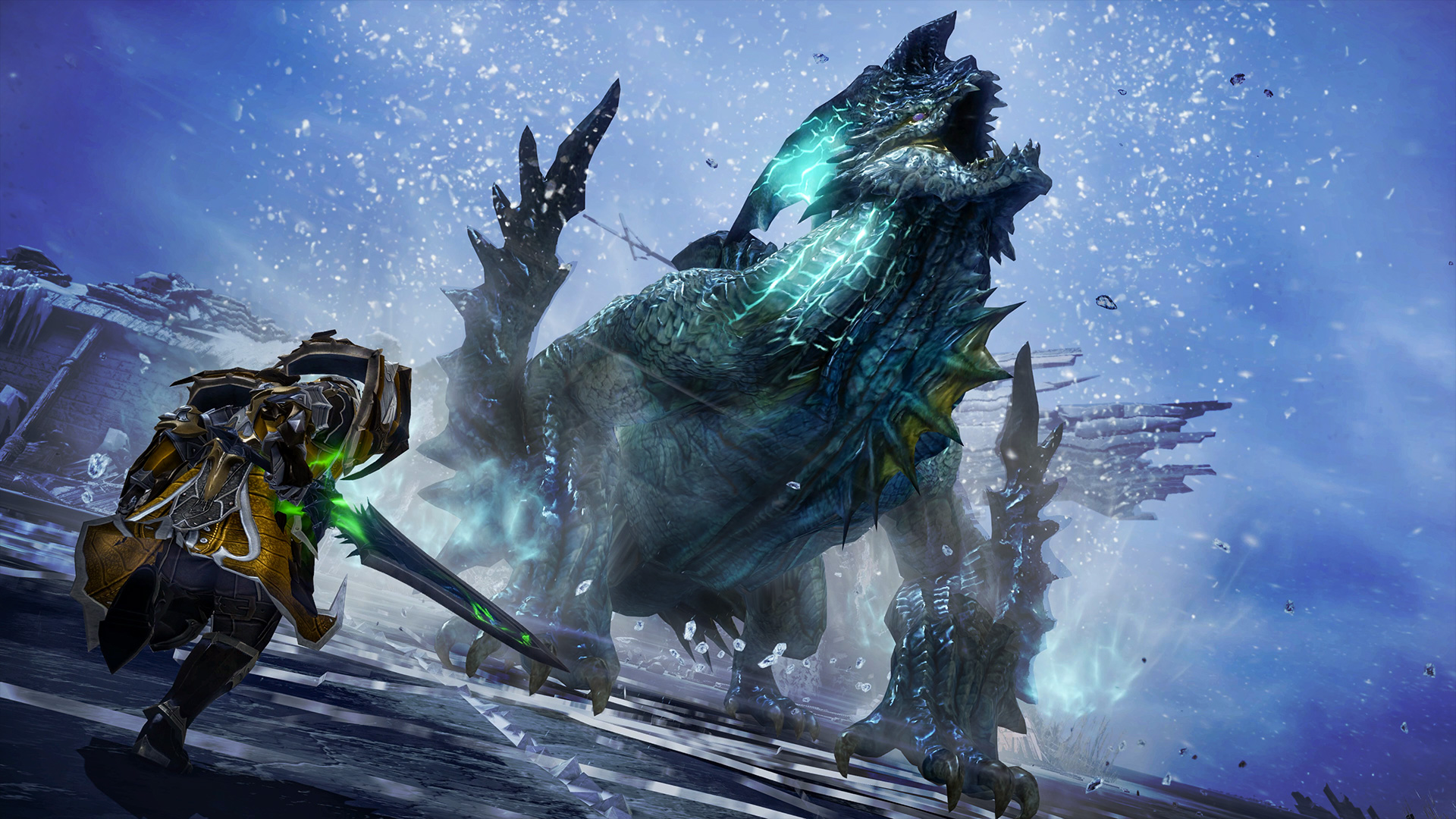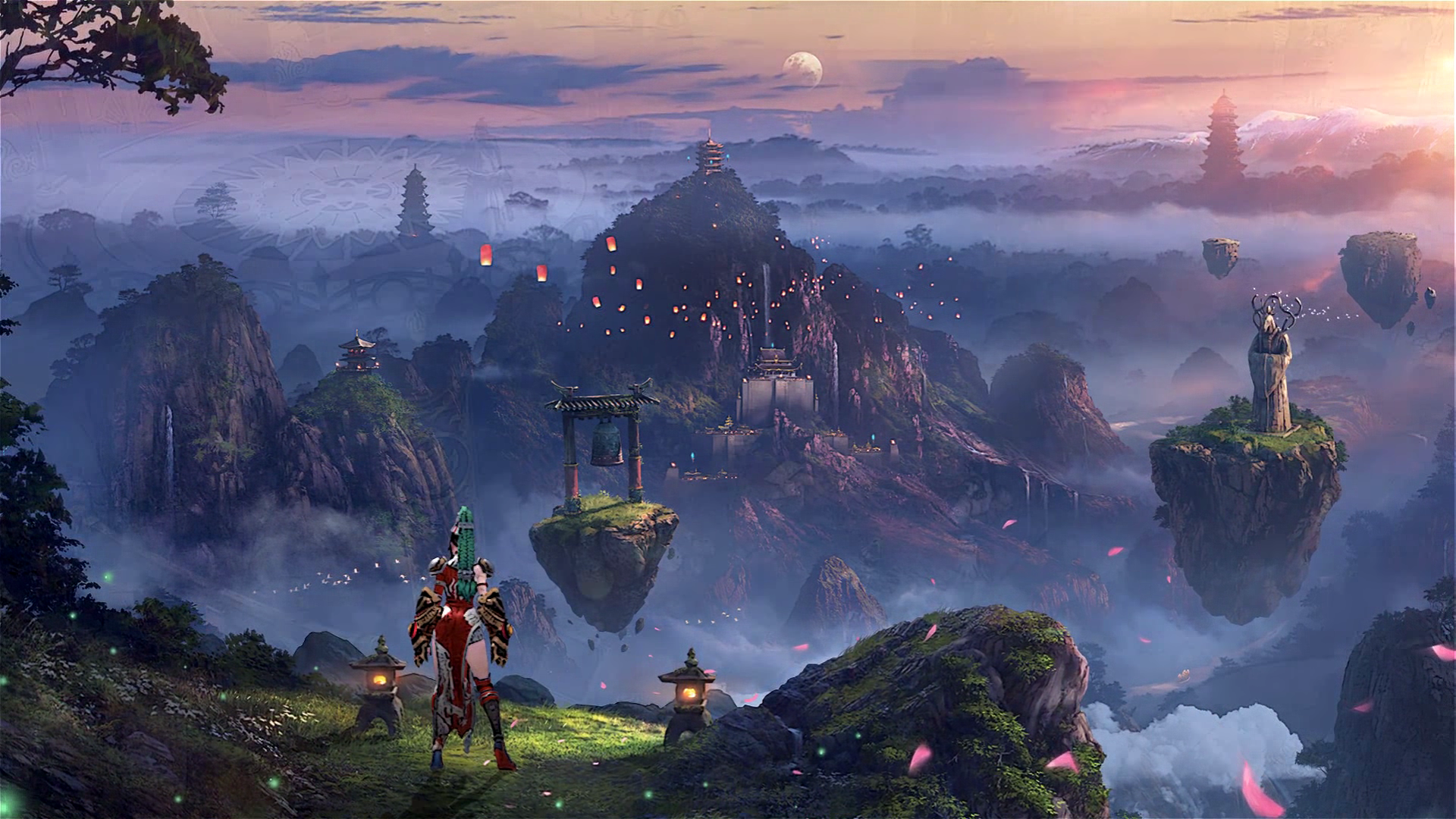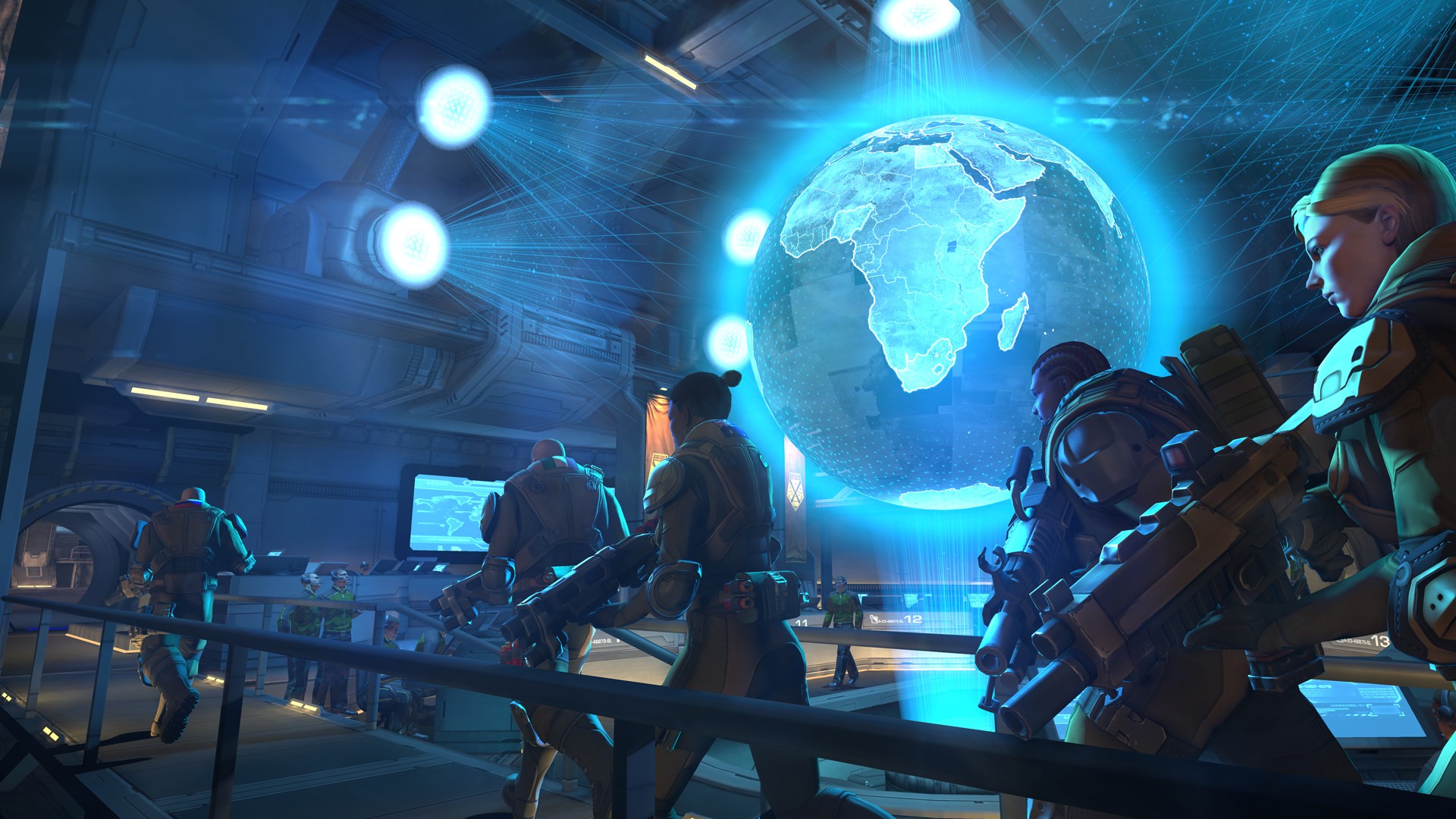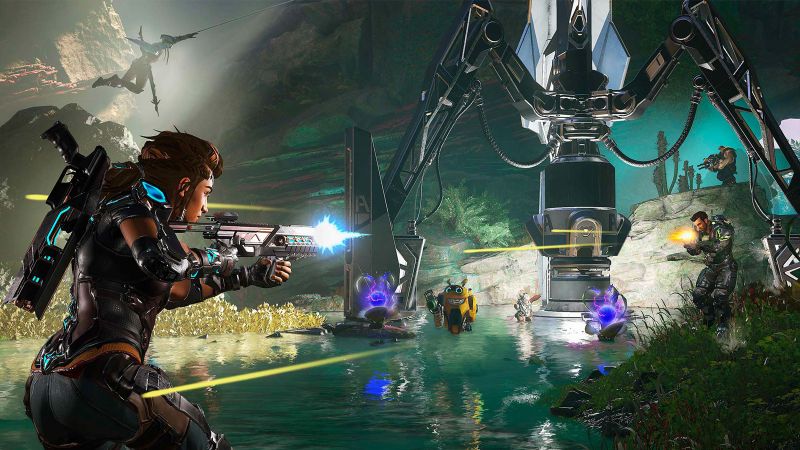Lessons in success at Amazon Games
You can't escape timing

Sign up for breaking news, reviews, opinion, top tech deals, and more.
You are now subscribed
Your newsletter sign-up was successful
It may seem obvious, but it’s hard to predict success. That’s what comes across when talking to Christoph Hartmann, Amazon Games’ Vice President. As an executive at Take-Two Interactive, Hartmann witnessed Grand Theft Auto’s explosion in popularity, as one of the founders of 2K Games he played a key role in Firaxis’ reboot of the XCOM series, and, now, at Amazon Games, he’s been behind New World and Lost Ark, two MMOs that have launched to audiences of hundreds of thousands of players.
Hartmann’s also seen failures. In his first six months at Amazon Games, he was part of the launch and swift cancelation of Crucible, the publisher’s third-person shooter. Why should one game succeed and another fail? Hartmann was able to walk us through some of the things within a developer’s control and what is just bad luck.
Good timing
“I shouldn’t say this, but Lost Ark did better than I expected,” Hartmann tells me. “There are ways to monitor the chatter [about a game] on the internet. We do customer research, and it looked like people were gonna like it but then when I looked at the Steam numbers, like record-breaking, like 'Really, like second most-played game ever?'"
Unlike Amazon Games’ MMO New World, Lost Ark wasn’t developed by one of its in-house teams. Instead, it was produced as part of a publishing partnership with South Korean developer Smilegate. The team had already released Lost Ark in Korea and Russia through a partnership with My.Games, and for the Western launch Smilegate turned to Amazon.
It wasn’t a small job. Lost Ark had more than 16,000 lines of dialogue that needed to be localized and re-recorded, and not just into English, but into French, German, and Spanish. However, the payoff for the work was immediate, with more than 4.7 million people registering accounts for the free-to-play MMO. In its first 24 hours, more than 1.3 million people played concurrently on Steam.
Hartmann admits that as much as the data supported their decision that Lost Ark’s success, as with any game’s release, is also a result of “a little bit of fortune and sometimes [..] good timing”.

We want to do games which are a hobby and not just a game you pick up and drop.
Amazon recently unveiled its immediate plans for Lost Ark’s future, with more of the game’s Korean content set to be translated and released on the Western servers. A new story episode, that includes new quests and environments to complete and explore and a new endgame Abyss Raid.
Sign up for breaking news, reviews, opinion, top tech deals, and more.
Lost Ark and Amazon’s other big release, New World, both fit the mold of service games. An area Hartmann is particularly keen to explore, saying both because it’s a natural fit for Amazon with its web services business, but also because he believes “it’s the future” of games.
“We want to do games which are a hobby and not just a game you pick up and drop,” Hartmann explains. “If it's a hobby, it might be lifelong, or at least for many years to come.” This isn’t new thinking, MMOs have been around for decades, and the long-term success of games like World of Warcraft, Guild Wars, and Final Fantasy XIV have tempted many developers to emulate their success.
The temptation to chase
Hartmann’s familiar with that temptation because he saw it from the other side when he worked on the GTA series at Take-Two Interactive. “What I learned in the last 25 years is don't chase after what's biggest,” he says. ”When GTA got big, what did we have? The Godfather, True Crime, and so on. And no one [else got] there. When World of Warcraft came out, everyone thought, ‘MMO, that's the big thing. Let's do an MMO.’ It sucked up the entire market.”
So, why, then, was one of the first titles Hartmann launched as VP of Amazon Games an MMO? Because while World of Warcraft may still be a big player, even as it approaches its 18th birthday, it no longer takes up all the oxygen in the room. The space was ripe for something new.
“[You can] either find something new, but we know how hard it is,” Hartmann says, “or look at genres which haven't been touched for a while and try to bring them back. “ He did this before at 2K with the XCOM reboot. The series was famous in the 90s but lay untouched for more than a decade until Hartmann gave it to Firaxis. “We had a super talented team there, and it turned out a fantastic game rated in the 90s. Everyone loved it.”

“When I started [at Amazon Games] three years ago, I looked at the titles we had, and I liked New World because I felt MMOs [hadn’t seen] any bigger titles for a while,” Hartmann said. This could be another XCOM moment.
That's one of the mistakes made in games; people don't think long-term.
But there are two significant challenges to MMO development compared to a single-player turn-based tactical game, they’re much more expensive and they’re long-term commitments. Plus, their player base is a rollercoaster, which can worry the money people. “As we have seen with any MMO, there are ups and downs,” Hartmann explains. “They all start high and they level out, and then either a new game feature or some big content comes out, and they go up again and level again and go down. But every time you do it, you pick up some people along for the ride.”
“That's one of the mistakes made in games; people don't think long-term,” Hartman says. “They put a title out and, if it doesn't work, they just drop it and move on to the next one. And I think that's a dangerous thing.”
However, this is something Amazon is good at, Hartmann says. “Amazon thinks long-term. Having worked with a traditional publisher before has the situation every quarter where investors want to know what's happening. [...] At Amazon, they think long-term, and when they find something which works, they double down. That's what we're going to be doing with New World.”
"That 10,000-pound gorilla"
That wasn’t the case with Crucible, though, Amazon Games’ third-person shooter was released in June 2020 and canceled less than four months later. That doesn’t display the long-term support Hartmann describes, but Hartmann defends the decision when I put this to him.

“Crucible had potential,” Hartmann says, “but when [Relentless] started to develop the game [in 2014] there was no Fortnite [or PUBG]”. And, because it was a new studio “built from the ground up” and making “new technology” it was at a disadvantage competing against teams like Epic, “which has an insanely good engine and hundreds of people sitting around”.
By the time Relentless had made Crucible into a playable game, Fortnite - “that 10,000-pound gorilla” - was the new World of Warcraft, sucking up all the oxygen in the room. Hartmann says “That was unlucky, but I felt it was better to release it than not release it. [...] You shouldn’t be afraid of shipping because it’s so hard to predict, to be honest”.
It’s been fascinating to watch Amazon’s steps into the games industry, to see how it’s as susceptible to the fluctuations and fickleness of the game release calendar as any other publisher. But, now that it is starting to find success, and it has two games that have large and growing audiences, we’ll finally be able to see if Amazon Games has what it takes to become a publisher that rivals the other big players, such as Ubisoft, EA, or even Hartmann’s old home Take-Two Interactive.

Julian's been writing about video games for more than a decade. In that time, he's always been drawn to the strange intersections between gaming and the real world, like when he interviewed a NASA scientist who had become a Space Pope in EVE Online, or when he traveled to Ukraine to interview game developers involved in the 2014 revolution, or that time he tore his trousers while playing Just Dance with a developer.